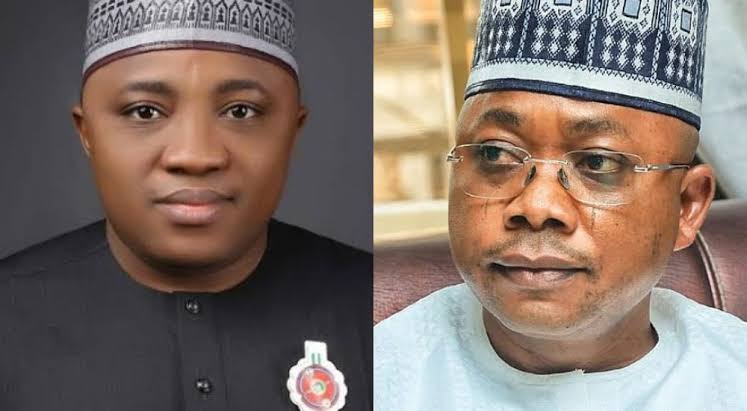
Pro- Asiwaju groups, the Renewed Hope Ambassadors, and the Asiwaju Transformation Vanguard, have called for stop to persecution of Edison Ehie, the Chief of Staff to Rivers State Governor, Siminalayi Fubara on terrorism, arson charges.
Justice Emeka Nwite of the Federal High Court Abuja hahad issued a warrant for the arrest of Edison Ehie over his alleged involvement in the burning of the State House of Assembly.
Ehie, is the immediate past Speaker of Rivers State House of Assembly.
The court had ordered his arrest along with five other persons based in Port Harcourt which includes; Jinjiri Bala, Happy Benedict, Progress Joseph, Adokiye Oyagiri and Chibuike Peter also known as Rambo for allegedly participating in some criminal activities.
Justice Nwite granted order on Wednesday for their arrest while delivering ruling in an ex-parte application brought before him by the Inspector General of Police IGP.
However, the groups in a press confrence on Thursday called upon all stakeholders in Rivers State to work together towards a peaceful and harmonious coexistence.
It noted that it is only through unity and understanding that we can overcome the challenges we face as a nation and build a brighter future for generations to come. Emphasizing on the importance of Wike respecting Mr. President, and the peace of Rivers State,
The groups also urged Wike to reconsider his approach to handling the affairs of the state post his exit.
The statement reads in part; “Ladies and gentlemen, esteemed members of the Renewed Hope Ambassadors and the Asiwaju Transformation Vanguard, I stand before you today to address a matter of critical importance, the pressing issue of the state of our beloved nation and the need for mutual respect and unity among our political leaders: the ongoing tension between Mr Nyesom Wike and the emerging national political landscape under the potential leadership of Asiwaju Bola Ahmed Tinubu.
“We will shed light on the importance of Governor Wike respecting Mr. President, and the peace of Rivers State, while also urging him to reconsider his approach to handling the affairs of the state post his exit.
“First and foremost, it is crucial to recognize the significance of respect in our political landscape. Respect is not only a fundamental value in our society but also a cornerstone of effective governance. As a leader, Mr Wike must understand the importance of showing respect to the President of our great nation. This respect fosters a harmonious relationship and enables collaboration in the best interest of the people.
“Furthermore, it is imperative to emphasize that the political philosophy of Asiwaju Bola Ahmed Tinubu is not one that promotes animosity or division. Asiwaju is a respected figure in Nigerian politics, admired for his ability to build bridges and foster unity.
“Asiwaju Tinubu, throughout his illustrious career, has embodied the spirit of unity and bridge-building. He has transcended regional and ethnic divides, forging alliances and friendships across the political spectrum. This philosophy, one that prioritizes respect for diverse viewpoints and peaceful collaboration, is the very foundation upon which a stronger, more prosperous Nigeria can be built.
“It Is with deep concern, therefore, that we witness Mr Wike’s apparent struggle to embrace this spirit of unity. His recent actions and pronouncements raise troubling questions about his commitment to respecting the democratic process and upholding the peace within Rivers State and the nation as a whole. It is very disheartening to witness Mr Wike finding it difficult to assimilate himself into this political philosophy, which is rooted in the principles of inclusivity, progress, and development for all.
“As supporters of Asiwaju, we must remember that Asiwaju is not a politician who harbors enemies. Throughout his career, he has faced betrayals, yet he has remained steadfast and loved by the people. It is this spirit of forgiveness, resilience, and love that we must emulate in our political discourse.”











